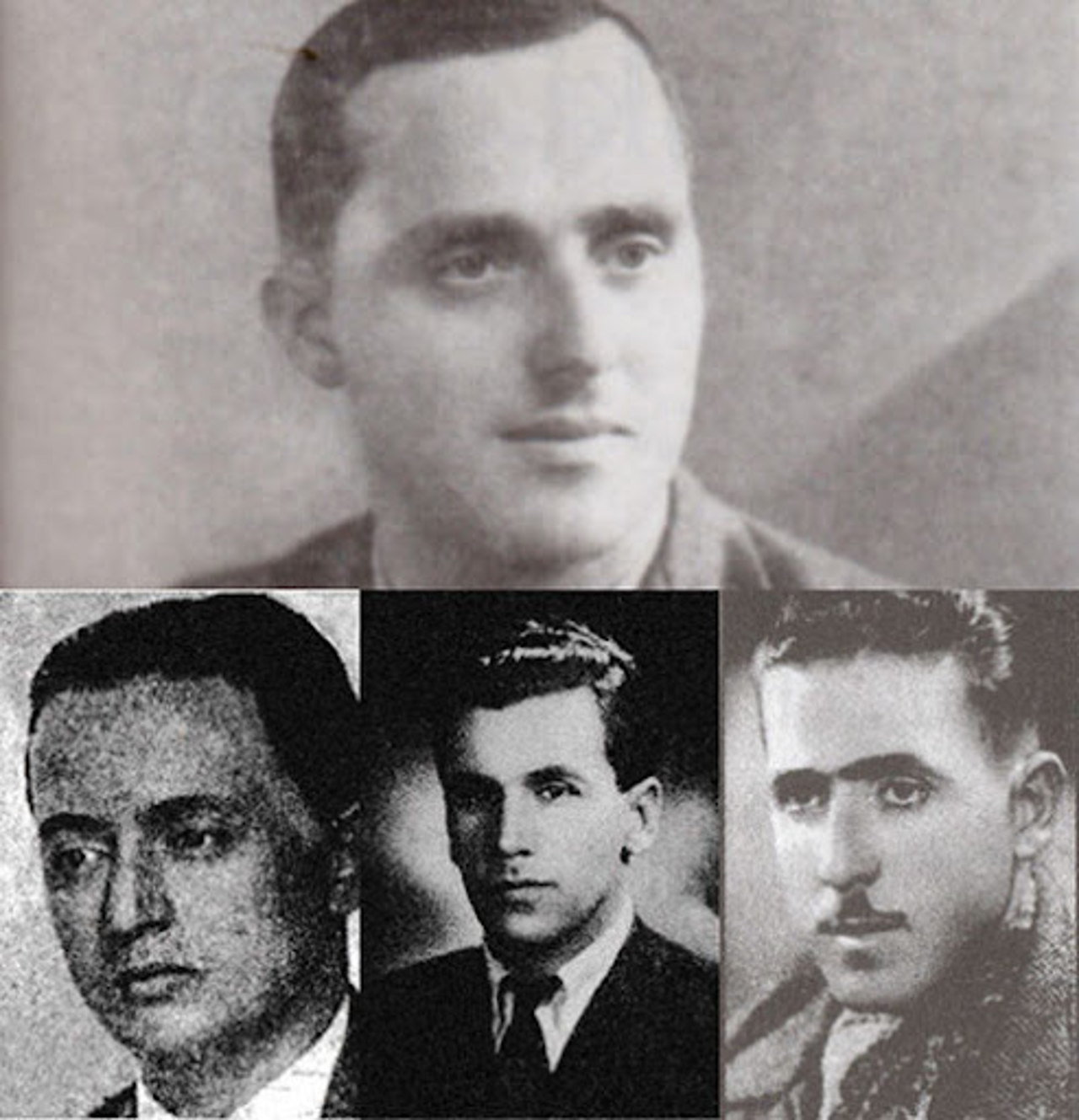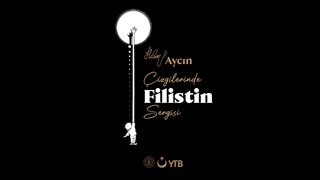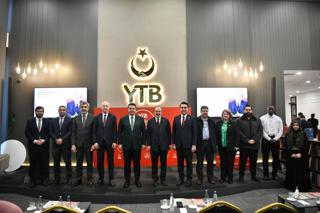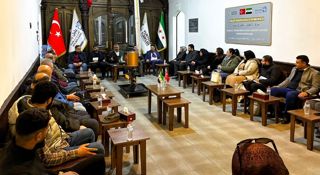Hushed Lament of Macedonian Turks: “Yücelciler”
Salı, Şubat 27, 2024
The communist regime had its way. The organization, which lost four devoted intellectuals and hundreds of its members were imprisoned, lapsed into silence with great sorrow. In fact, the issue caused great trauma for the Macedonian Turks. There was no lament for Yücelciler. Their name was not mentioned, and all Macedonian Turks, fearing an end like theirs, had to or pretended to forget them for about 40 years.
‘Rise, this is not the place to be.
Neither is it a deed to be born’.
Namık Kemal
There was a general sense of discomfort with the cultural and social superiority of the Muslims in Macedonia under the rule of the Kingdom of Yugoslavia, which was established after the Ottoman withdrawal from the Balkans, and of the socialist regime of Yugoslavia that came to power after World War II. The intolerance, which became more pronounced especially with the advent of the socialist regime, grew into a policy of oppression and assimilation against the Turkish and Muslim communities. All national and immaterial formations established by the local communities were continuously monitored by the regime and destroyed before they could flourish. The objective was to cleanse the Balkans of Turks, Albanians, and Bosnians, the ultimate goal being to clean the Balkans of all the Muslims. An organization was established to serve and safeguard the national and immaterial values of the Macedonian Turks within the borders of this hot spot: It was called Yücel Organisation.
The Yücel Organisation had an extremely heterogeneous structure that people from various disciplines such as scholars, activists, teachers, printers, tradespersons, lawyers, and many more were actively involved in. Each member of the organization was making efforts to light the candle to brighten the future of the Macedonian Turks left in the dark while sacrificing their youth and dreams for the cause...
Circumstances That Entailed the Establishment of the Yücel Organisation in Macedonia
The Turkish-Russo War 1877-1878 was one of the key developments that put the presence of the Turks in the Balkans at risk while it was home to the Turks for nearly 500 years. Serbia, Montenegro, and Romania gained independence in the aftermath of the war, and the Principality of Bulgaria, a vassal state of the Ottomon Empite. As the borders were set anew, over half a million people suffered from the Russian and Bulgarian atrocities, and hundreds of thousands of people were forced to migrate to Rumelia and various parts of Anatolia out of fear for their lives. The migration, which remained in effect by the Balkan War in 1912, went on exponentially following the massive loss of lands as a result of the Balkan War. 600,000 Turks died of atrocities and adverse migration conditions, and 400,000 Turks migrated to Anatolia, having to be torn from the lands they were born in. The living conditions were harsher and harsher for the Turks who could not migrate and had to stay in Kosovo, Macedonia, Western Thrace, and the Rhodopes. From 1923 to 1945 in particular, nearly 1.5 million people migrated from the Balkans to Anatolia due to the harsh living conditions.
All there was left to do for the Turks who did not give up the Balkans at the time was to adapt to the new and harsh conditions. Adaptation did not mean having their hands tied, for sure. The period from 1912 to 1945 was a time when the seeds were planted by the Turks of the Balkans to have a civilian presence in their lands where they were not safeguarded. At the time, the Turks, the Bosnians, and the Albanians made efforts to organize themselves as their rights were under threat across various parts of the Balkans. Those were the years when Mladi Muslimani (Young Muslims) was founded in Bosnia (1937) and the Turks of Macedonia were in a haste to lay the foundations of the Yücel Organisation. The organization had come out with a view to safeguarding the national and immaterial values of the Turks in Macedonia and reminding them of their long-forgotten sensibilities.
In his book Yücel Organisation, Yıldırım Ağanoğlu notes that one of the key developments that led to the foundation of the organization was the handover of Vardar in Macedonia from the German allies to Bulgaria. Skopje was ruled by the Bulgarians for 3 years during World War II. Sensing the potential hostile acts to be committed by the Bulgarians, the Macedonian Turks strongly reacted in return and founded Yücel in 1941.
The members including Şuayip Aziz, Şerafettin Ferid, Nazmi Ömer, Muzaffer Ahmet, Fettah Süleyman Pasiç, and Mehmet Dalip founded the organization out of necessity given the circumstances at the time. Some documents that offer insights into that period point out that the total number of Yücelciler members was around 500, while the number of members actively involved in actions as part of the organization was around 50.
Near the end of 1944, the communist Yugoslavs began to rule the whole country upon the withdrawal of Germany from the Balkans and Bulgaria from Skopje. Once the Socialist Federal Republic of Yugoslavia was founded in November 1945, Yücelciler met with the Turkish ambassador in Belgrade to discuss their potential role in the newly-founded administration and actions to be taken for the Turks. This did not go unnoticed on the part of the communist regime as it was the case for all other actions.
The seven-member central committee of the organization was settled as follows after the talks between the organization members and Kamil Koperler, the Ambassador to Belgrade, in 1945: The head of the organization was Şuayip Aziz İshak, the treasurer was Ali Abdurrahman Ali, the secretary was Şerafettin Ferit Süleyman and the members of the central committee included Refik Şerif Mehmet, Kemal Rasim İlyas, Fettah Salih Süleyman Pasic, and Abdülkerim Ethem İbrahim. Skopje and Veles (Köprülü) were the cities where the organization's sphere of influence was the largest.
Having originated among the Macedonian Turkish intellectuals of the time and rippled through all remote villages, the organization was largely built around the purpose of safeguarding the national culture, standing against de-identification, stopping assimilation and reluctance to adapt to the communist regime, and did not pursue any other military or political motives.
Under the constitution of the socialist regime led by Tito, each segment of the society had equal rights while it was not the case in practice. Tito was wary of the Turks and Muslims in particular and tried to eliminate all the national and immaterial movements that cropped out over time. In the meantime, the Yücel Organization served as a helping hand to the people for the people out of a necessity.
By the end of this heroic story, the Yücel Organization paid the price of their efforts to secure the Turkish presence in Macedonia with the murder of 4 members and the imprisonment of hundreds of others in the dungeons of the socialist state of Yugoslavia.
Broadcasting the first Turkish feed on Radio Skopje and training numerous teachers for the Macedonian Turks through the Turkish lessons taught by the organization were the actions of Yücelciler that accelerated the formation of national awareness. Delivering Turkish broadcast to the remotest villages of Macedonia, they were urging the Macedonian Turks to unite around their sympathy of Türkiye and Turkish language.
Tefeyyüz Primary School, which was arguably one of the key actions of the organisation, is a tangible instrument of legacy left for the Turks of Macedonia by Yücel Organisation as a place where Turkish education was provided and it is still in operation today.
Who are ‘Yücel Martyrs’?
Having led the organization, Şuayip Aziz was taught until 1930 at the Meddah Madrasa run by Ataullah Kurtiş Efendi in Skopje and then studied theology in Al-Azhar University. Having lodged an application in Ankara Faculty of Theology in 1939 to serve as an academic, he went back to Yugoslavia to bring his family into Türkiye when World War II broke out. This was the beginning of the end that kept him apart from Türkiye and everything he fought for eternally. Şuayip Aziz İshak Bey, in his full name, was sort of a polar star for the Turks of Macedonia, the head of the Yücel Organisation, and the author of the organization’s statute. He held consultations for the organization’s operations through his contacts in the Turkish Consulates of Skopje and Belgrade.
Another martyr of the organisation, Ali Abdurrahman Ali, was a member of the organisation who, after joining the organisation in 1943, had the first meeting with the consul of Skopje for consultation purposes. As Yıldırım Ağanoğlu notes in his book titled Yücel Organisation, it was from him that the members of the organisation first heard Namik Kemal's verse ‘Rise, this place is not of earth. Neither is it a deed to be born’. This verse would later inspire the organisation to be named after ‘Yücel’.
Nazmi Ömer Yakup, a central committee member, was the very first Turk to graduate from the Belgrade School of Law. Nazmi Ömer, who was a teacher at the Tefeyyüz School, one of the key actions of the organisation, was a well-qualified figure who also served as the secretary general of the Skopje Administrative Court for a while under the Tito regime. For sure, his position was a front and the fact was that Nazmi Ömer was committed to the organisation and its survival.
Having professionally served as a saddler, Âdem Ali Âdem was the final martyr out of the organization that each segment of the society was involved in. National and sprituel goals were all pervasive in the daily routines of each member. It did not matter whether they were a hairdresser, a blacksmith, a lawyer or a teacher. All of them were heartfelt volunteers for Yücel.
To the Bitter End
The organization was renamed as “Yücel” in 1944 with the influence of Şuayip Aziz İshak, the head of the organization. The administrative team of the organization, which rapidly grew in 2 to 3 years, predicted the potential challenges to be posed by the deluge of communism against the Turks and thus placed some members of the organization, including Nazmi Ömer, in certain administrative bodies of the regime. This structure was the reason why the organisation, which took actions through cells, did not lose all of its members during the witch-hunt launched by the communist regime against the Yücel Organization. For instance, only two of the city's leaders, Ali Halil Mustafa and Ahmet Halil Mustafa, could be uncovered even as part of the arrests in Köprülü (Veles).
All the information submitted to the court by the intelligence organisation UBDA, which worked for Tito, was accepted as undisputed truth. The court was a sham and Tito, who opposed any national and immaterial movement, was behind it.
Şuayip Aziz İshak, Ali Abdurrahman Ali, Nazmi Ömer Yakup and Âdem Ali Âdem, who were not allowed to go out in the sun for months ahead of the court proceedings and were sentenced to severe torture and imprisonment conditions, eventually losing their lives on 27 February 1948, after a five-day trial, the price of following the ideal of being and remaining a Turk. The current whereabouts of their tombs are not even exactly known.
Tito’s regime had its way. The organisation, which lost four devoted intellectuals and hundreds of its members were imprisoned, lapsed into silence with great sorrow. In fact, the issue caused a great trauma for the Macedonian Turks. There was no lament for Yücelciler. Their name was not mentioned, and all Macedonian Turks, fearing an end like theirs, had to or pretended to forget them for about 40 years.
REFERENCES:
Ağanoğlu, Yıldırım. A Movement of Resistance in Yugoslavia during World War II: Yücel Organisation, Istanbul: Association of Culture and Solidarity with Rumelian Turks, 2012
Atalay, Osman. “Yücelciler: Forgotten North Macedonian Heroes”, Institute of Strategic Thinking, February 27, 2021
Ağanoğlu, Yıldırım. Üsküp Kitabı, İstanbul: Fide Publications, 2008
Çalışkan, Berrin. “Perceptions of Yücelciler About Their Land/Yugoslavia and Homeland/Türkiye In the Aftermath of Migration in 1953, İnsan ve Toplum, 2014
Şerif Emin, Leyla. “Anavatan’ın Yücelciler Borcu”, Gerçek Hayat, 2017
YTB - Commemorative Event for the 73th Anniversary of the Death of Yücel Martyrs. https://www.youtube.com/watch?v=inkTbWgE2rA



